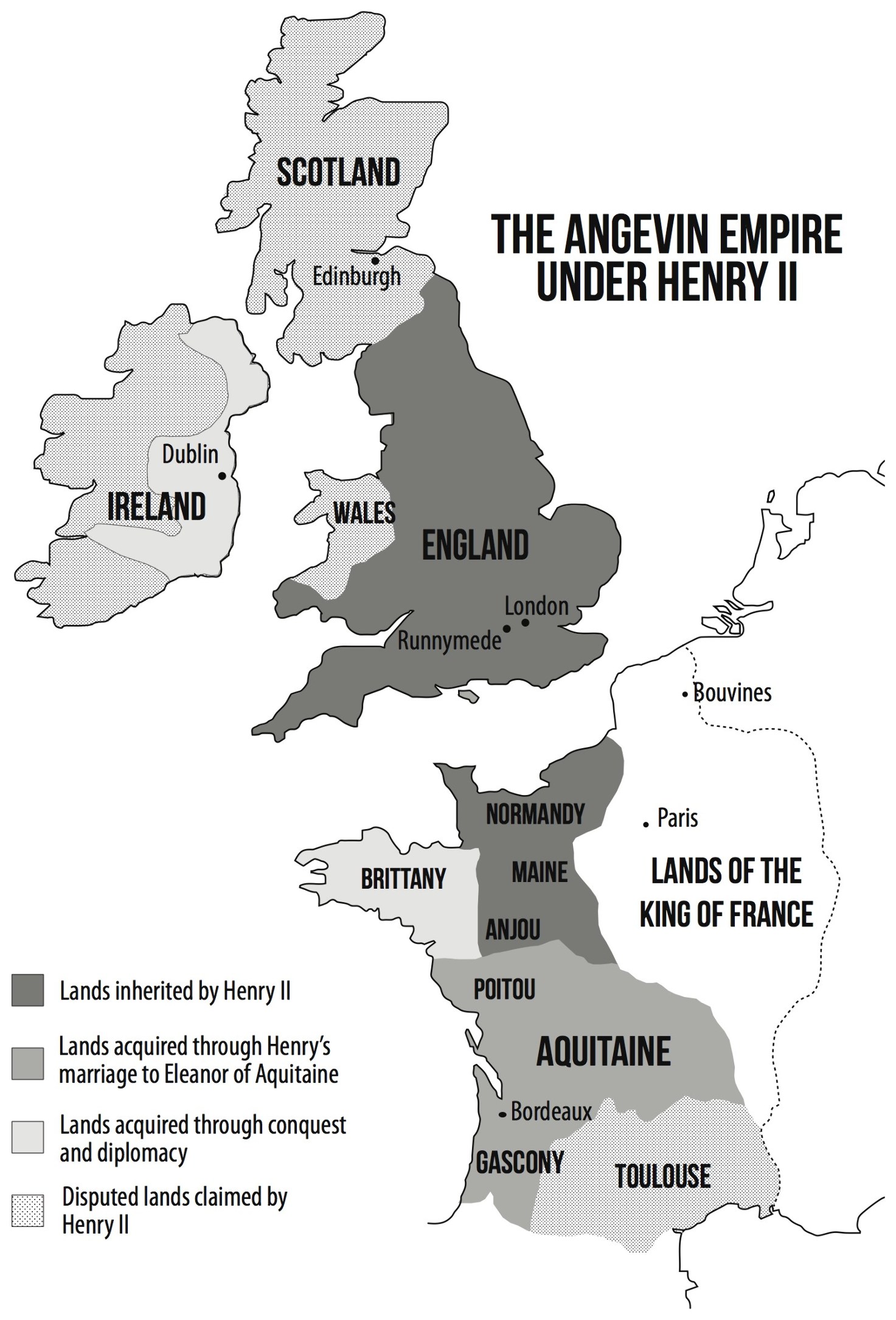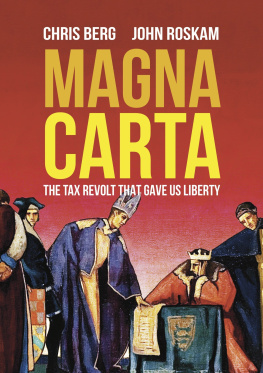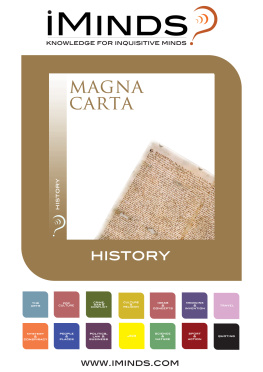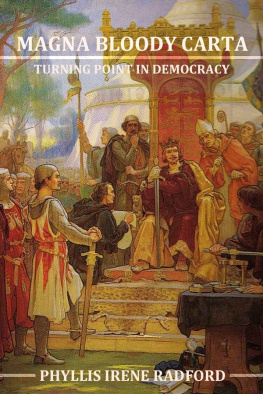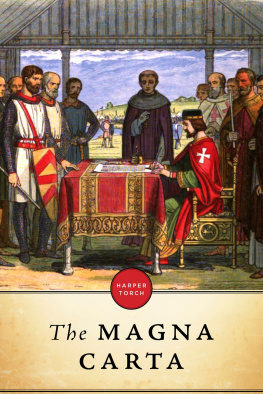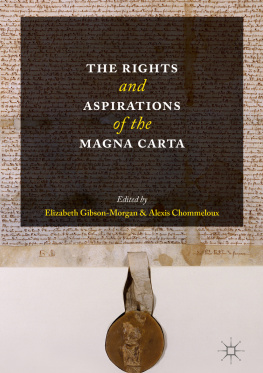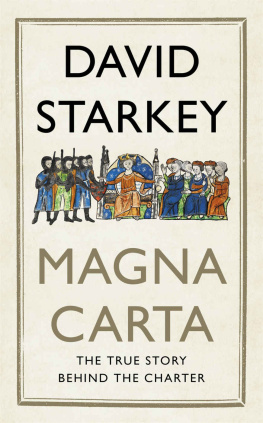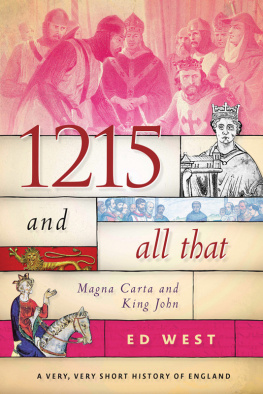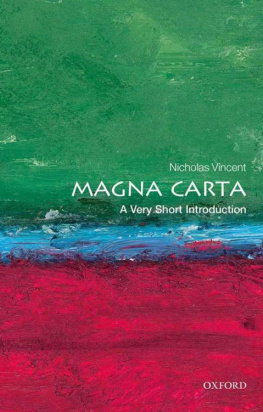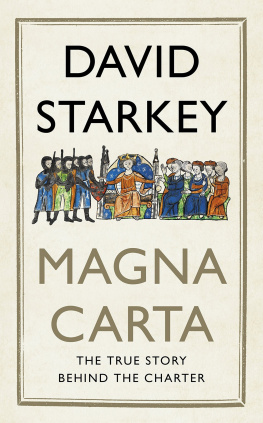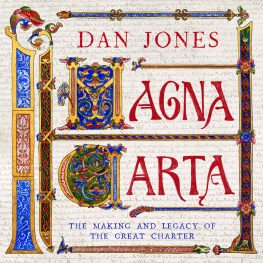MAGNA CARTA
THE TAX REVOLT THAT
GAVE US LIBERTY
By Chris Berg and John Roskam
With Stephanie Forrest
Institute of Public Affairs
2015
Smashwords edition
Institute of Public Affairs
Copyright Chris Berg & John Roskam 2015
ALL RIGHTS RESERVED. This book contains material protected under International and Federal Copyright Laws and Treaties. Any unauthorised reprint or use of this material is prohibited. No part of this book may be reproduced or transmitted in any form or by any means, electronic or mechanical, including photocopying, recording, or by any information storage and retrieval system without express written permission from the publisher.
Institute of Public Affairs
Level 2, 410 Collins St
Melbourne VIC 3000
ipa@ipa.org.au
www.ipa.org.au
National Library of Australia Cataloguing-in-Publication data:
Berg,Chris, author.
Magna Carta: the tax revolt that gave us liberty / Chris Berg, John Roskam.
ISBN: 9780909536794 (ebook)
Magna Carta.
Constitutional history.
Taxation.
Liberty.
Liberalism.
342.029
CONTENTS
The Institute of Public Affairs gratefully acknowledges the encouragement and support of Mr Chris Abbott for the production of this work.
Chris Berg is a Senior Fellow with the Institute of Public Affairs. He is author of Liberty, Equality & Democracy , In Defence of Freedom of Speech , and The Growth of Australias Regulatory State .
John Roskam is Executive Director of the Institute of Public Affairs. He is co-editor of 100 Great Books of Liberty and co-author of Australias Education Choices .
Stephanie Forrest is a Research Scholar at the Institute of Public Affairs and author of Australias British Heritage (forthcoming).
PREFACE
T he Magna Carta is the product of a revolt against excessive and unjust taxation. In the eight hundred years since King John put his seal on the Magna Carta, dozens of books have been written about the document. Many more works have been published in 2015. Yet, while much scholarship is devoted to exploring the history of the Magna Carta, often its significance and relevance is overlooked.
To a modern reader the Magna Cartas language is obscure and its provisions are anachronistic. But this is only because the mechanisms by which medieval English governments expropriated the property of their citizens are different to those of our own time. The royal government of medieval England was a vast apparatus designed to extract as much money as possible out of the people and their property.
In June 1215 a group of barons forced King John to agree to the Magna Carta, which contained a list of concessions and limitations on the monarchs power to tax his subjects. While historians still argue about whether the Magna Carta should be regarded as a peace treaty, or a contract, or a proto-constitution, its long term significance as a constraint on the power to tax is undeniable. Long after questions on matters of scutage, amercements, and socage ceased to be relevant, the Magna Carta remained an icon of resistance to unjust taxation. It is still a warning to rulers that the power to tax is not unlimited.
Ultimately the limits to taxation embedded in the Magna Carta took on a life of their own, giving us the essential building blocks of modern democratic liberty. From the provisions of the Magna Carta came the principle of the rule of lawthat every person, including the king, is subject to the law. The Magna Carta is also key to the development of the English common law, whose principle that law should evolve gradually and organically is one of the foundations of a liberal legal order. All this came from the Magna Cartas limits on the power of the state to tax.
This book explores how the Magna Carta irrevocably made the relationship between tax and liberty the great liberal cause throughout centuries of English and then British history. We explain what the Magna Carta means for liberty and freedom of the individual.
There are a plethora of books on the Magna Carta for those interested in learning more about the subject. The gold standard in Magna Carta studies is William McKechnies Magna Carta: A Commentary on the Great Charter of King John, with an Historical Introduction . McKechnie was a professor of law at the University of Glasgow. His commentary on the Magna Carta, first published in 1905, with a second edition appearing in 1914, continues to be the single best analysis of the text and meaning of the Magna Carta. A century on, McKechnies language and writing remain fresh and engaging.
The second edition of Magna Carta, published in 1992 by Sir James Clarke Holt, a professor of medieval history at Cambridge University, is the most important work on the law and politics of the period. David Carpenters Magna Carta, which appeared in 2015, incorporates the latest scholarship on the documents origins and provisions and is indispensable. Other works, all of which are recent and interesting, include Magna Carta: A Very Short Introduction and Magna Carta: The Foundation of Freedom 1215-2015 by Nicholas Vincent, Magna Carta: The Making and Legacy of the Great Charter by Dan Jones, King John: England, Magna Carta and the Making of a Tyrant by Stephen Church, and King John: Treachery, Tyranny and the Road to Magna Carta by Marc Morris.
William Blackstones Commentaries on the Laws of England were the result of a highly successful and highly remunerative series of lectures he delivered in the 1760s. The Commentaries were hugely influential in the development of the common law in England and the United States and helped establish the modern-day standing of the Magna Carta. The Commentaries are available online and for free through the Online Library of Liberty.
Readers interested in twelfth and thirteenth century politics and society will do no better than turning to two comprehensive overviews: A. L. Pooles 1951 From Domesday Book to Magna Carta, 1087-1216, part of the Oxford History of England, and the more recent England under the Norman and Angevin Kings, 1075-1225 by Robert Bartlett, which is part of the New Oxford History of England series.
Books are collaborative efforts, and this no less than others. This book would not be possible without the incomparable assistance of Stephanie Forrest, our researcher and editor. Stephanies detailed, insightful, and scholarly work provides the foundation on which many of this books arguments rest. We would also like to thank the ever-cheerful and helpful Carla Schodde for her Latin translations. Aline Le Guen, the editor of the IPA Review, Ben Hourigan, Peter Gregory, Patrick Hannaford, Darcy Allen and James Bolt also made many thoughtful suggestions on the text.
Finally, a short note on terminology. Magna Carta is Latin for Great Charter. In some scholarly work it is called simply Magna Cartathat is, without the definite article the. Throughout this book Magna Carta is called the Magna Carta for no other reason than to assist in the readability of the work. We have applied the same principle to names, titles, and places. Where a variety of terminologies are available we have chosen the simplest and most understandable.
We have not sought to write a book buried in scholarly exegesis, but something that brings the Magna Carta into the present daya book that illustrates the enduring significance of the document and the tax revolt from which it emerged.
Chris Berg & John Roskam
May 2015
